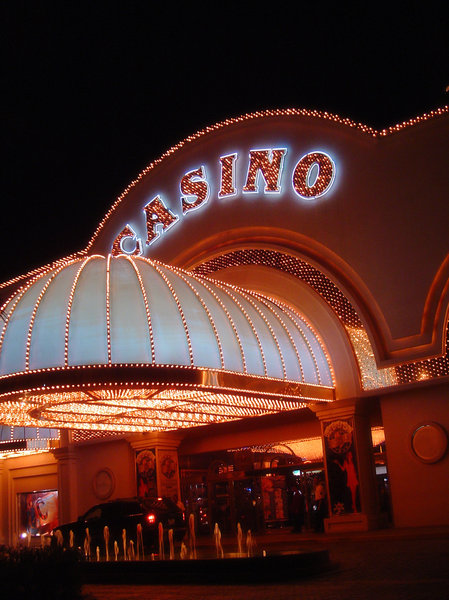
Gambling games have long been a captivating entertainment option, drawing millions of players from varied cultures around the globe. From the opulent casinos of the Strip to the busy gambling halls of the Chinese gambling capital, these games serve as a common thread that brings together people across a variety of backgrounds. The allure of chance, strategy, and risk entices not only those hoping to win money but also those seeking a shared experience.
The influence of casino games extends significantly past the gaming floor. https://u8888.ink/ They often represent the values and traditions of the societies in which they prosper. Games such as poker, blackjack, and the wheel game have integrated into the fabric of cultural phenomena, influencing various aspects from films to style. u8888 As we explore this intriguing intersection of gambling and society, we can gain insights into how these games shape and are influenced by the world around us.
Chronological Evolution of Gambling Games
The origins of gaming games can be traced back to historical civilizations, where betting in different forms was extensively engaged in. In Ancient China, around 2300 B.C., a variant of lottery known as Keno was well-known, while in old the Roman Empire, soldiers would often gamble on the outcomes of their matches. The idea of using randomness for amusement and gain evolved over the centuries, leading to the formation of more formal activities. By the end of the Middle Ages, betting houses began to surface in Europe, particularly in Italy, which introduced early forms of famous games still played today.
As betting expanded fame in the continent, the 17th and 18th centuries saw the emergence of casinos as exclusive venues for gaming. The earliest official casino, the Ridotto, was established in the city of Venice in sixteen thirty-eight, providing games like Baccarat and the game Faro. This period marked a crucial turning point, as casinos started to attract not just the high society but also the burgeoning middle-income class. The sophistication of activities increased, leading to the development of new regulations and versions that enriched the gaming experience.
In the 19th century, the era of industrialization and shifts in societal conventions also altered the landscape of gambling games. The launch of roulette and contemporary one-armed bandits pulled in a more diverse audience, and gaming houses became seen as acceptable recreation. This era witnessed the globalization of gaming, as casinos extended from European nations to the New World, culminating in the establishment of the legendary Las Vegas Boulevard in the 20th century. The evolution of gambling activities has continued into the current era, incorporating technology and digital sites, rendering them available to a universal market.
## Cultural Relevance within Various Societies
Casino activities have significant cultural value in a multitude of cultures throughout the globe. In Las Vegas, the very essence of the urban landscape is woven around gaming venues, where gaming is not just a hobby but a fundamental aspect of leisure and social interaction. The bright lights and vibrant atmosphere attract a vast audience, showcasing how games of chance can shape local economical structures and cultural uniqueness. This setting transforms the notion of relaxation into an immersive encounter that influences apparel, sound, and even film.
Conversely, some cultures treat wagering with more caution, considering it through the lens of ethical considerations and tradition. For example, in numerous Asian communities, games like Mahjong and Pai Gow are full of history and have significant social meanings. These games are often played during meetings and occasions, fostering collective connections and reinforcing familial ties. The act of playing these games goes past mere leisure, reflecting principles such as respect for elders and the significance of communal fun.
Simultaneously, in Western countries such as Monte Carlo and Italy, gambling activities serve as symbols of luxury and refinement. The elegant atmosphere of these venues attracts both tourists and residents, upholding a sense of prestige and elitism. The art of poker and the strategic features of games like banker’s game are esteemed, shaping social dynamics and creating an attraction that captivates a diverse audience. This emphasizes how gambling can simultaneously echo and shape cultural perspectives towards risk, benefit, and community interaction.
Economic Impact and Travel Industry
Gambling activities play a important role in the economic landscape of many regions, particularly those that rely heavily on visitor traffic. The revenue generated from gambling establishments fuels local economies, creating employment opportunities not only within the casinos themselves but also in related sectors such as hospitality, restaurant services, and recreation. This influx of tourists, drawn by the allure of games and the overall gaming environment, stimulates expenditure across multiple businesses, contributing to the economic health of the region.
The existence of casinos often leads to the construction of infrastructure, including hotels, transportation systems, and leisure amenities. These improvements are essential in enhancing the overall visitor satisfaction, making locations more appealing to visitors. Additionally, many casinos contribute in local communities through sponsorship of events and charitable activities, further integrating themselves into the community structure of the region. Such contribution not only supports economic growth but also cultivates a positive reputation of the gambling sector.
Furthermore, the worldwide appeal of casino games drives tourism competition, with locations vying to attract gamblers from around the world. Iconic locations like Las Vegas and Macau have become identifiable with gambling culture, drawing millions each year. This competitive edge encourages innovation and diversification within the gambling sector, influencing developments in leisure and hospitality that extend beyond their borders. The consequences of this visitor influx extend wide, impacting local financial health and cultural interactions on a global scale.
